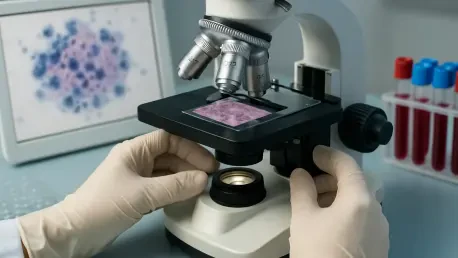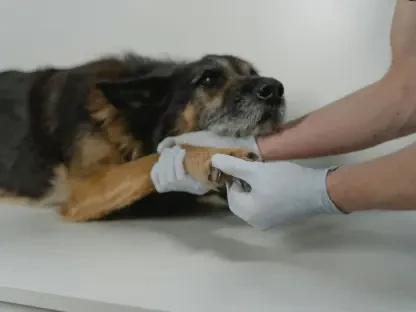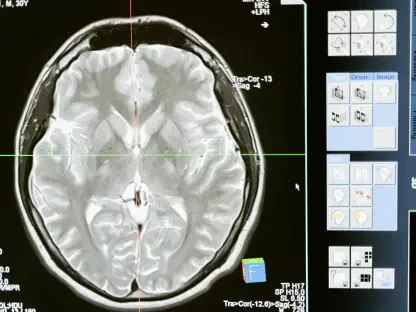In the realm of cancer diagnostics, few challenges are as daunting as detecting central nervous system (CNS) cancers, particularly those that metastasize to the brain or spine from other parts of the body like carcinomas and melanomas, often leaving patients with limited treatment options. For countless individuals, late-stage diagnoses typically shift the focus toward palliative care rather than curative measures, but a Houston-based innovator, CNSide Diagnostics, is stepping into this critical space with a groundbreaking cerebrospinal fluid (CSF) assay designed to detect cancer cells with unprecedented sensitivity. Recently acquired by Plus Therapeutics in Austin, the company has launched an ambitious rollout of this test, starting in Texas with plans for nationwide expansion within the next year. This development sparks a vital question: could this new tool redefine how CNS cancers are identified and managed, offering hope where traditional methods have fallen short?
Revolutionizing Early Detection with CSF Assay
Detecting CNS metastases early has long been a significant hurdle in oncology, as conventional tools like MRI scans and cytology frequently miss cancer cells in their initial stages, delaying critical interventions. CNSide Diagnostics’ innovative CSF assay addresses this gap by analyzing cerebrospinal fluid for the presence of cancer cells, providing a far more sensitive approach to diagnosis. This method allows physicians to identify metastases before they become visible on imaging, enabling earlier treatment that could potentially alter the disease’s trajectory. The impact of such a tool cannot be overstated, as it shifts the focus from reactive to proactive care, giving patients a fighting chance against a condition often deemed untreatable at later stages. With approximately 200 of the 300 neuro-oncologists in the U.S. already engaging with this technology, the medical community’s growing trust in the assay signals a promising shift toward improved diagnostic standards.
Beyond the immediate benefits of early detection, the CSF assay also serves as a powerful tool for ongoing monitoring of CNS cancers, allowing doctors to assess treatment effectiveness over time. This capability is crucial for tailoring therapies to individual patients, ensuring that adjustments can be made promptly if a treatment proves ineffective. Unlike static diagnostic methods, this dynamic approach provides actionable insights that can guide clinical decisions throughout a patient’s journey. For conditions like CNS metastases, where progression can be rapid and devastating, having a reliable means to track the disease offers a layer of precision that was previously unattainable. As CNSide Diagnostics continues to refine and expand access to this test, the potential to integrate it into routine care for high-risk patients could mark a turning point in how these complex cancers are managed.
Strategic Growth and Collaboration in Texas
The decision to relocate CNSide Diagnostics from San Diego to Houston has proven to be a strategic masterstroke, despite initial challenges in establishing operations and securing lab accreditation. Houston’s vibrant business ecosystem, coupled with access to top-tier talent from nearby academic institutions, has created an ideal environment for the company’s growth. Proximity to world-renowned medical centers like MD Anderson Cancer Center further enhances opportunities for collaboration and innovation. This location also offers logistical advantages, with a major transportation hub facilitating the swift processing of lumbar puncture samples from across the country as the company scales its operations. Such factors position Houston as a cornerstone for CNSide’s mission to transform cancer diagnostics on a national scale.
Moreover, the early adoption of CNSide’s technology by prominent Texas institutions underscores the test’s credibility and potential impact. Facilities such as the University of Texas – Southwestern, MD Anderson, Mays Cancer Center, Baylor Scott & White Health, and Texas Oncology have already integrated the CSF assay into their practices, fostering a network of support and validation. These partnerships not only accelerate the technology’s reach within the state but also serve as a model for broader implementation across the U.S. The collaboration with these leading centers highlights a shared commitment to advancing patient care through cutting-edge diagnostics. As CNSide builds on these relationships, the synergy between innovation and clinical expertise could pave the way for widespread acceptance, ensuring that more patients benefit from earlier and more accurate detection of CNS cancers.
Shaping the Future of Precision Oncology
The emergence of CNSide Diagnostics’ CSF assay aligns with a broader trend in oncology toward precision diagnostics, where the emphasis is on personalized and timely interventions. This approach recognizes that early detection and continuous monitoring are pivotal to improving survival rates and enhancing quality of life for patients with complex conditions like CNS metastases. By providing a tool that empowers physicians to act swiftly and adapt treatments based on real-time data, CNSide is contributing to a paradigm shift in how cancer care is delivered. This focus on actionable diagnostics reflects a growing consensus in the medical field that static, one-size-fits-all methods are insufficient for addressing the nuances of metastatic cancers affecting the central nervous system.
Looking ahead, the successful rollout of this test in Texas could serve as a blueprint for national expansion, potentially influencing how other diagnostic technologies are developed and implemented. The ability to detect cancer cells with greater sensitivity opens doors to new research avenues, including the exploration of novel therapies tailored to early-stage CNS metastases. Additionally, the integration of such advanced tools into standard practice could inspire a reevaluation of diagnostic protocols, prioritizing precision over traditional limitations. As the medical community continues to embrace these advancements, the collective effort to improve patient outcomes gains momentum, highlighting the transformative power of innovation in tackling some of oncology’s toughest challenges.
Reflecting on a Milestone in Cancer Care
Looking back, CNSide Diagnostics’ launch of its CNS cancer testing in Texas marked a significant stride in addressing the dire challenges of metastatic cancers impacting the central nervous system. The introduction of a highly sensitive diagnostic tool through the CSF assay shifted the landscape from late-stage despair to the possibility of early intervention and sustained monitoring. Houston’s strategic advantages played a pivotal role, offering a supportive backdrop that amplified the company’s efforts through access to premier medical and academic resources. As the test gained traction among leading Texas institutions, it laid a robust foundation for broader impact. Moving forward, the focus should remain on scaling this innovation nationwide, ensuring that accessibility matches the technology’s potential. Exploring partnerships beyond state lines and investing in education for healthcare providers could further cement this breakthrough’s role in reshaping cancer diagnostics for generations to come.









